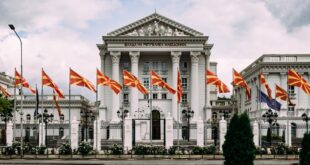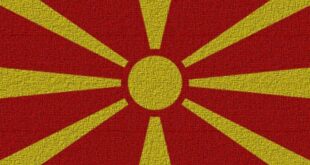The dispute between Athens and Skopje about the use of the name Macedonia has been raised by leaders from the two countries in speeches and meetings at the United Nations General Assembly.
On September 28 2010, Greek foreign minister Dimitrios Droutsas said in a speech to the UN General Assembly that Athens was ready to reach a solution “as early as tomorrow” on the long-standing dispute.
Greece objects to Skopje’s use of the name “Republic of Macedonia” as historically inappropriate and, given that Greece has a northern province called Macedonia, says that Skopje could exploit the use of the name for its own country to reinforce its territorial claims in Greece.
Droutsas told the General Assembly: “This is not a bilateral, pedantic dispute about historical symbols, as some may try to portray it, but a regional question, with deep historical roots, related to good neighbourliness,” the UN News Service said.
The United Nations-brokered Interim Accord of 13 September 1995 details the difference between the two nations on the name issue. It also obliges them to continue negotiations under the auspices of the Secretary-General to try to reach agreement.
Since 1999, Matthew Nimetz, the UN envoy on the issue, has been holding talks with the two sides and has proposed compromise names.
“In order to reach a compromise on the name issue, the two sides must meet in the middle by taking reciprocal steps to bridge the gap and reconcile their conflicting positions,” Droutsas said, emphasising that “Greece has already done its part”.
He said that a fair and durable solution for the name requires a geographic qualifier.
“Macedonia is a large geographic region, most of which lies in Greece,” with a small part in the former Yugoslav Republic of Macedonia and a smaller section in Bulgaria, Droutsas said.
“The part cannot represent the whole,” he said, underscoring that the former Yugoslav republic’s exclusive claims to the name “Macedonia” cannot be used to fuel nationalism.
Greece has stepped up its efforts to reach a settlement under the UN negotiating process led by Nimetz, Droutsas said.
He called on prime minister Nikola Gruevski, the prime minister in Skopje, to “display leadership and become our partner for progress”.
The country must focus on finding a solution, rather than “creating [an] atmosphere of antagonism or even animosity and of avoiding taking responsibilities,” Droutsas said.
“Greece is extending a hand of friendship and co-operation,” he said. “The time has come for our neighbours to take this hand.”
On September 24, Macedonian president Gjorge Ivanov told the General Assembly that he was hopeful that agreement can be reached with neighbouring over the name issue.
Ivanov said that he had met Greek prime minister George Papandreou on September 23 at UN Headquarters in New York with the aim of “building a climate of mutual trust and understanding.”
“I hope that, as two neighbouring countries that have lived and will live with one another, we will be able to find a mutually acceptable solution,” Ivanov told the Assembly debate, according to the UN News Service “It will be a big step for us, but a huge step towards fulfilling the common vision for our whole region.
“I must tell you that I am encouraged with the situation in the region. The more intensive [the] communication and cooperation, the better [the] understanding and respect,” Ivanov said.
On September 27, UN Secretary-General Ban Ki-moon held talks with Macedonian foreign minister Antonio Milososki, discussing the Macedonia name dispute.
A spokesperson for the Secretary-General’s office said that Ban and Milososki had “exchanged views” on the topic.
 Eurasia Press & News
Eurasia Press & News



